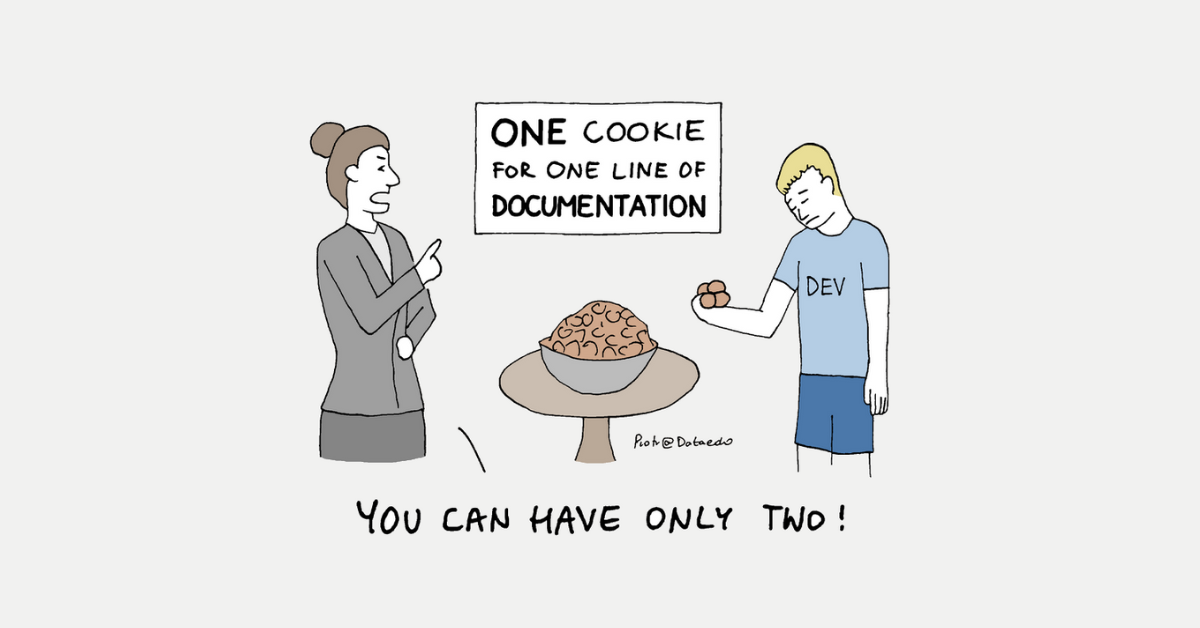In this blog, let’s explore some adages and aphorisms pertinent to the work of creating an effective data governance catalog. These can help us identify some success-strategies that will help with your data cataloging project.
A colleague of mine here at Dataedo recently made an obvious, though profound, statement. He said, “A data catalog will never be any better than the amount of effort put into it.” I think we can agree that an effective data catalog is valuable and that having such ought to be one of our business goals. The trouble is that data catalogs “don’t grow on trees—” they are built, and that requires effort.
Of course, data catalog solutions such as Dataedo continue to develop and implement features to support and simplify the creation process, but in the end, effort is always required. No data catalog solution will do everything automatically.
Let’s talk about some places where the creation process might break down and treat these as alerts or warnings.
First off, be patient. Remember,“Rome wasn’t built in a day.” Your project is going to take time and commitment. Cultivate that perspective so you can resist becoming frustrated or disillusioned with a perceived lack of progress toward a gargantuan undertaking. I’ve advised in another blog post against promising too much, too soon. It would be nice if building the catalog were so simple that we could expect to have it completed in a month, but that’s not the case. This is a long-term activity you’ve committed to. Please take it seriously and give it a place in your long-term plans.
As equally dangerous as the idea that the catalog can be completed quickly is the idea that we can build the catalog as a “once and done” activity. It will require ongoing maintenance to keep it alive and useful to your organization. Please keep your commitment active, not only in terms of keeping content up to date, but also in terms of listening to users and incorporating their ideas for improvements in the future. You should adopt the perspective that the data catalog is a living entity that must be nurtured for the long-term.
“Eat your elephant one bite at a time.” Chances are that your data cataloging project is huge. It can be daunting to contemplate, or you might be unsure where and how to begin. The best approach is to break your project into smaller units that are easy to conceptualize and manage. I’ve mentioned this approach before: identify distinct use cases that focus on specific needs for specific groups of users. For example, “the BI team wants to verify that a group of reports apply transformation logic correctly (so they need a data dictionary to understand the data sources) and use terminology consistently (so they need glossary terms and definitions).” Attack your use cases one at a time.
Use cases are manageable activities that you can complete in a reasonable amount of time. Don’t forget the value of setting SMART goals (specific, measurable, achievable, relevant, and time-bound). This will help you manage these “sub-projects” and lead to continual progress and long-term success.
Identifying the people involved as consumers of use cases allows you to rely on them for feedback during development and, ultimately, they will be invested in using the results of your efforts.
Finally, as you complete individual use cases, you will have the recurring satisfaction of completing those parts of the catalog, you will have increased confidence in your skills, AND you will receive validation from users regarding the catalog’s value and their recognition of your contribution. Satisfaction and validation are powerful motivators. Additionally, don’t forget that completing these use cases also puts you in a position to demonstrate the value of the catalog—and your effort—to management.
Many years ago, I heard a Turkish proverb that has stuck with me: “It’s easy to catch a serpent with someone else’s hand.” In the context of creating our data catalog, we must be willing to take continuing personal responsibility for our part of the project.
Telling others to do the hard, tedious work with the expectation that it will magically be completed is unrealistic. It is true that someone will oversee the project, but assigning the work to others and then ignoring them for an extended period is not effective—in my opinion. This is hard work and those doing the tedious tasks need support. Hold regular progress meetings and celebrate successes! Everyone needs to know that the hours and days spent doing the tedious work of writing descriptions, for example, is recognized and appreciated.
And if you are the person doing the tedious work? Well, you have to “just do it” even when it’s hard and boring. I understand and accept the argument that we are busy and have conflicting priorities, but please make a commitment and devote time to the project every week, at least. It’s too easy to let some tasks take precedence over others that are boring and difficult. “This catalog isn’t going to build itself.” You just have to keep at it.
“Keep your eye on the prize.” No matter your role in the data catalog project, remember that your involvement is crucial to its success. Stay focused. Stay committed. Stay enthusiastic and involved. Don’t let setbacks derail your good intentions. Try to prevent unavoidable distractions from pulling you away from the project for extended periods. I already mentioned holding periodic progress meetings. I believe these are one of the most effective ways to keep the project on track. There’s power in being held responsible by one’s colleagues. And if that’s not enough, invite your managers into your progress meetings; that will keep things moving! I’m only half joking about that. Do whatever it takes to stay focused and on track. You’ve committed the funds, now you have to commit the time and effort.
"Call in the experts." Remember that you're not alone in your effort to create the data catalog. The Data Success team is here to assist you every step of the way. We can provide training. We can help you remember best practices. We can help you develop use cases and a plan of action. We can hold periodic check in meetings with you and hold you accountable to your goals and schedule. We are committed to partnering with you to make your data governance journey as simple and successful as possible. Please, rely on us always, not only during the onboarding phase of your journey.
In conclusion, allow me to relate a story I once heard.
A man was driving down the road one evening when he saw his friend on the side of the road looking intently into the grass. The man stopped and asked, “Did you lose something?”
“Yes, my keys,” was the reply.
“Where did you have them last?”
The searcher replied, “Over there by those trees.”
Exasperated, the man asked, “Then why are you searching over here?”
“Because the light’s better here.”
The lesson buried inside this joke is obvious: do not succumb to the temptation of doing things an easy, ineffective way with the hope that they will turn out well in the end. In other words, don’t undertake your data cataloging project with the hope of a successful outcome while not committing to the difficult or unpleasant parts of the project as well.
I understand that building a data catalog is tough and that there are many places the project can break down—setbacks getting the tool installed and configured, trouble gaining access to data sources, difficulty getting others such as subject matter experts involved, culture challenges with adoption and use, and a hundred others. Please persevere; the result is worth the work!
Lastly, always remember, “Nothing good was ever accomplished without effort.” Your data governance catalog is “good,” and effort is unquestionably required.











 Richard Monk
Richard Monk



